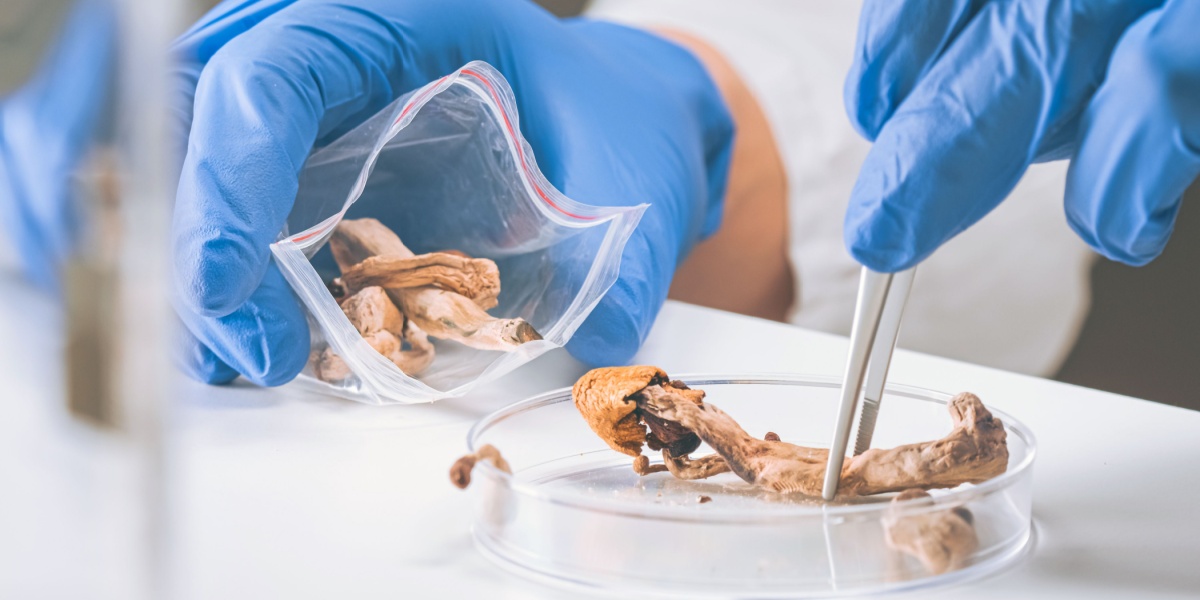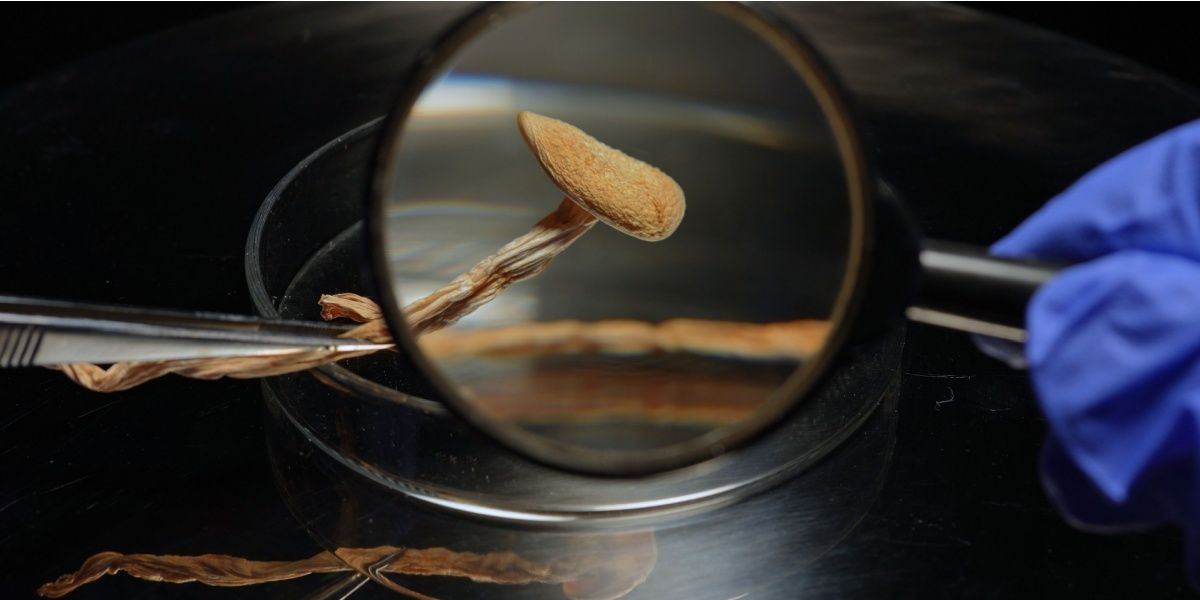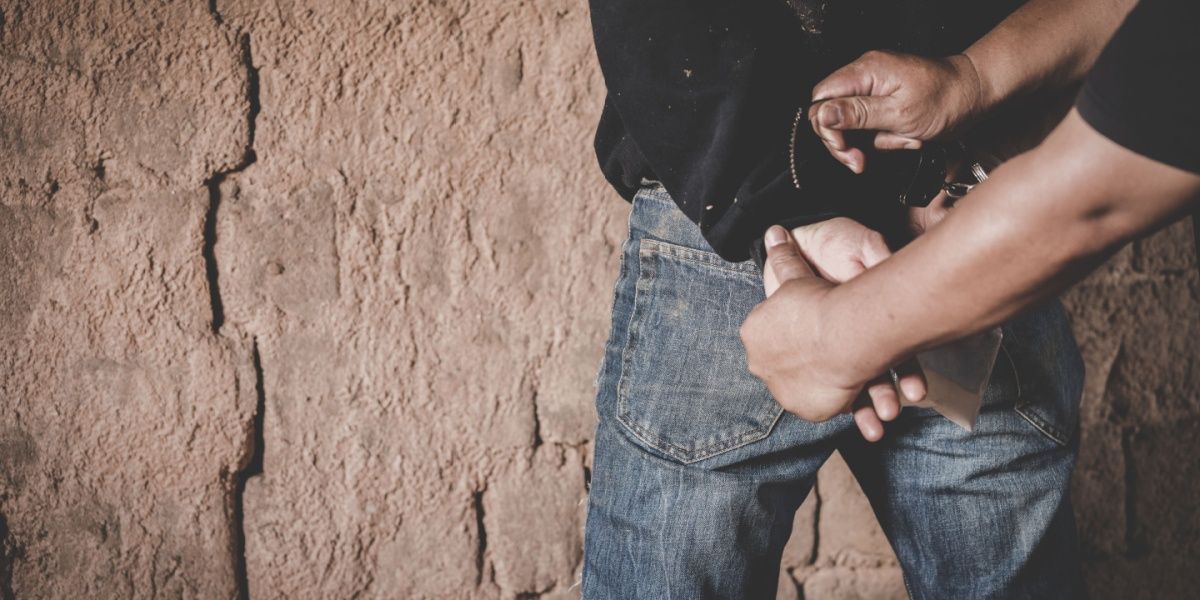Psilocybin, found in what is colloquially referred to as ‘magic mushrooms,’ is a hallucinogenic substance that is illegal in the United States under federal law. State laws vary, and in some places, psilocybin is legal or decriminalized and can be used for medicinal purposes. Legislation continues to change as attitudes and evidence regarding its use develop.
- Psilocybin is a Schedule I controlled substance.
- Psilocybin is legal or decriminalized in some places in the US and is sometimes legally used as a therapeutic treatment.
- Research into the therapeutic benefits of psilocybin and other psychedelics is ever-increasing, contributing to continuing changes in legislation.

Federal legal status of psilocybin: Are 'shrooms' legal?
Under federal law, psilocybin, along with many other psychedelic substances, is illegal and classified as a Schedule I substance under the Controlled Substances Act (CSA). This means that it is deemed to have no medicinal benefit and high abuse and addiction potential. [1]
Federal law states that the possession, distribution, and manufacture of psilocybin can result in large fines and long prison sentences.
However, state laws vary, which means that the penalties for these acts differ significantly across the country. In some states or cities, possession of psilocybin will incur no prosecution or penalties. [2]
Many psychedelics, such as psilocybin, have reportedly been used for their medicinal and spiritual effects for many centuries, and, in recent years, their therapeutic benefits are becoming more widely accepted in scientific literature. [3]
Decriminalization vs. Legalization
Decriminalization means that a drug remains illegal but that law enforcement agencies are less likely to prosecute individuals, and penalties are significantly reduced or removed. In contrast, legalization means that a once-illegal substance is no longer illegal. [4]
State-level psilocybin laws
Currently, psilocybin is legalized in only two states: Oregon and Colorado. Its legal status varies across states, with many currently reviewing bills to update legislation. [2][5][6]
| State | Legal Status | Notes |
|---|---|---|
| Alabama | Illegal | No changes |
| Alaska | Active Legislation | House Bill 228 was passed in 2024, allowing the establishment of a task force to prepare for psychedelic medicalization. |
| Arizona | Active Legislation | After a failed bill in 2024, Senate Bill 1555 was introduced in February 2025 to create a psilocybin advisory board to research psilocybin-based mental health treatments. |
| Arkansas | Illegal | No changes |
| California | Active Legislation | Personal use and possession of psychedelics has been made the lowest law enforcement priority in certain cities. Statewide legalization bills have failed but continue to be proposed. |
| Colorado | Legalized | Psychedelics and psilocybin medical treatment centers are legalized. |
| Connecticut | Active Legislation | Small amounts of psilocybin have been decriminalized. Currently, a bill to allow the medical use of psilocybin is pending. |
| Delaware | Illegal | No changes |
| Florida | Failed Legislation | Bills to decriminalize psilocybin and allow medical research have failed. |
| Georgia | Active Legislation | A recent bill proposes to change the psilocybin classification to allow access to psilocybin-based treatments. |
| Hawaii | Medical Research | Bills to change the classification of psilocybin and establish psilocybin-assisted treatment centers have been introduced. |
| Idaho | Illegal | No changes |
| Illinois | Active Legislation | House Bill 2992 was introduced in February 2025 to develop a pilot program allowing access to psilocybin assisted therapies. |
| Indiana | Active Legislation | Senate Bill 139 is under review, which will allow the establishment of therapeutic psilocybin research. |
| Iowa | Active Legislation | Recent bills seek to remove psilocybin from Schedule I classification and allow the legal production and use of the drug for therapeutic purposes. |
| Kansas | Active Legislation | House Bill 2218 was introduced in February 2025, which seeks to change FDA-approved psilocybin compositions from Schedule I to Schedule IV. |
| Kentucky | Active Legislation | The state is reviewing bills to reduce penalties for the possession of certain controlled substances. |
| Louisiana | Illegal | No changes |
| Maine | Active Legislation | After several failed bills, Maine is now considering the introduction of psilocybin therapy centers and administration, along with the decriminalization of small amounts. |
| Maryland | Medical Research | In 2024, House Bill 548 was approved, which allows a task force to study the use of psychedelic substances, including psilocybin. |
| Massachusetts | Active Legislation | Bills are being considered to decriminalize possession and legalize psychedelic-assisted therapies. |
| Michigan | Active Legislation | Current initiatives are being considered to decriminalize certain controlled substances and legalize the therapeutic uses of certain substances, including psilocybin. |
| Minnesota | Medical Research | In 2023, legislation was passed to allow a task force to study the therapeutic effects of psychedelics, including psilocybin. |
| Mississippi | Illegal | No changes |
| Missouri | Inactive legislation | Multiple bills have been proposed to change laws around the use of psychedelics, but they are currently inactive. |
| Montana | Failed Legislation | Bills to allow psychedelic-assisted treatment and research have been proposed and failed. |
| Nebraska | Illegal | No changes |
| Nevada | Medical Research | In 2023, psilocybin was decriminalized, and studies into its therapeutic benefits were approved. |
| New Hampshire | Active Legislation | House Bill 528 was introduced in January 2025 to decriminalize psilocybin. |
| New Jersey | Reduced Penalties | Since 2021, the possession of psilocybin for personal use has incurred a reduced penalty. |
| New Mexico | Illegal with Exceptions | Since 2005, it has not been illegal to grow psilocybin mushrooms, although distributing mushrooms remains a felony. |
| New York | Active Legislation | Various bills have been introduced, including legislation to allow the medicinal use of psilocybin and create a psilocybin-assisted therapy pilot program. |
| North Carolina | Active Legislation | House Bill 727 aims to establish research projects for the therapeutic use of MDMA and psilocybin. |
| North Dakota | Illegal | No changes |
| Ohio | Failed legislation | In 2020, a bill was proposed that would reduce the penalties for the possession of certain drugs, but it failed to pass. |
| Oklahoma | Inactive Legislation | Bills to permit research into psilocybin-assisted therapy have been introduced but are currently inactive. |
| Oregon | Legalized | Psilocybin is legal for mental health treatments at licensed facilities, and possession of small amounts is decriminalized. |
| Pennsylvania | Inactive Legislation | Bills to permit research into the therapeutic benefits of psilocybin have been introduced but are currently inactive. |
| Rhode Island | Inactive or Failed Legislation | Bills have been proposed to change psilocybin laws, although they have failed or are currently inactive. |
| South Carolina | Illegal | No changes |
| South Dakota | Illegal | No changes |
| Tennessee | Illegal | No changes |
| Texas | Medical Research | A bill was passed in 2021 to evaluate the therapeutic benefits of psychedelic treatments, including psilocybin-assisted therapies. |
| Utah | Medical Research | A law passed in 2024 allowed the creation of two pilot programs offering psilocybin and MDMA treatments. |
| Vermont | Active Legislation | Bills have been introduced to decriminalize substances, including psilocybin, and permit research into the therapeutic potential of psilocybin. |
| Virginia | Inactive Legislation | Various bills have been introduced to decriminalize psilocybin and allow psilocybin-assisted treatments, although these are currently inactive. |
| Washington | Medical Research | Since 2021, it has been legal for people over the age of 21 to access psilocybin-assisted therapies. |
| West Virginia | Inactive/failed Legislation | Bills introduced in 2021 and 2023 proposed to remove substances, including psilocybin, from Schedule I of the CSA but failed or are inactive. |
| Wisconsin | Illegal | No changes |
| Wyoming | Illegal | No changes |
Factors influencing legal status
Psilocybin and other psychedelics have been used for centuries as healing and spiritual tools. Evidence of their use dates back to the South American Aztecs, who used psilocybin mushrooms in religious rituals. [3]
In the last 10-20 years, research into the therapeutic use of psilocybin has expanded significantly, with indications of benefits in the treatment of depression, anxiety, post-traumatic stress disorder (PTSD), and addiction. [3][7]
In 2018, the Food and Drug Administration designated psilocybin as a ‘breakthrough therapy,’ allowing research and studies into its treatment potential. This has led to the increased use of psilocybin-assisted therapy in approved treatment centers. [8]
However, opinions regarding the use of psilocybin-assisted therapy are divided, and it remains a Schedule I controlled substance on a federal level. Many factors influence the public and federal attitude toward psilocybin and other psychedelics, including concerns around their dangerous psychological and physical effects. [2][8]
Currently, where psilocybin-assisted therapy is legal, it is only permitted to be used in approved treatment centers and administered by licensed professionals. Further research is needed to clarify how and by whom it can be safely used. [8]
Complexities and ambiguities in enforcement
Psilocybin is a substance found in various types of mushrooms. The substance itself is classified as a Schedule I controlled substance, while the mushrooms as a whole are not. This means that spores, which are used to cultivate psilocybin mushrooms, are not illegal until they are germinated and begin to contain psilocybin. [9]
However, possessing psilocybin spores could be considered illegal paraphernalia or an intent to cultivate psilocybin mushrooms, which can be punishable by federal law.
Global legal status of psilocybin mushrooms
Worldwide, the legal status of psilocybin varies. In countries including Peru and Bolivia, psilocybin is legal. It is legal for medicinal use in countries including Canada, Australia, and Denmark. In many countries, including Russia, India, and South Africa, psilocybin is illegal. [10]
Recent legislative developments and potential changes
As discussed in the above table, legislation around the legality of personal and medicinal psilocybin use is ever-changing. Research into its therapeutic safety and efficacy continues to expand, and it is predicted that psychedelics will be legalized throughout the US by 2037. [5]
Notable legal updates
In 2025, numerous state-level psilocybin law reforms were introduced during legislative sessions, but only a few were ultimately passed.
However, there were some advancements in psychedelic legalisation. New Mexico saw the legalization of a regulated market, and Texas received a grant for research into ibogaine treatment for opioid use disorders.[11]




